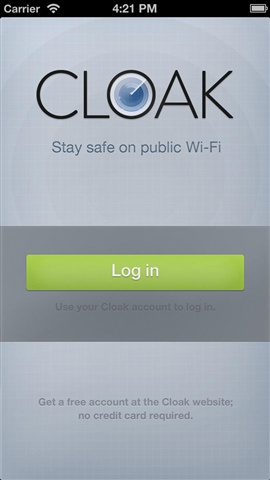This is Scientific American 60 seconds Tech, I'm Larry Greenemeier, got a minute?
这里是科学美国人60秒科技频道,我是拉里·格林梅耶。
You're walking near the park when your iPhone chimes. It tells you that one of your many Foursquare contacts is enjoying a coffee at an outdoor café on the next block. So you turn on your heel and head the other way.
想象一下,你现在正走在大街上,你的iPhone响了。这提醒你你在Foursquare圈子里的一个朋友正在下个街口的一家露天咖啡馆喝咖啡。于是你赶紧掉头,朝另外一个方向走去。
Welcome to the era of antisocial networking. Where you filter pictures of your friends' kids out of your Facebook feed, replace inane tweets with those you actually care about and keep tabs on people you'd rather avoid.

欢迎来到反社交网络时代。在这里你可以把你朋友孩子的照片从你的脸书中过滤掉,用你关心的内容来替换无聊的,还可以给你想避开的人贴标签。
The Cloak app, for example, collects location info from Instagram and Foursquare to let you know where your so-called "friends" are—so that you never have to see them. It scans their most recent check-ins, and plots those locations on a map. It can even alert you when the guy you owe 20 bucks to is nearby.
以Cloak程序为例,它可以习惯用户的Instagram以及Foursquare上搜集定位信息,并告知你所谓的朋友在哪里,这样你就可以对他们避而不见了。它还可以通过浏览最近的签到情况在地图上标识出人们的位置。甚至可以提醒你你欠过20块钱的兄弟就在附近。
Cloak developers Brian Moore and Chris Baker say they came up with the idea after too many chance encounters with ex-girlfriends. They plan to expand Cloak to interface with other apps, including Facebook. And they insist their feelings won't be hurt if they suddenly stop bumping into their Cloak-using friends.
Cloak程序的发明者布朗.摩尔和克里斯.贝克透露,他们的发明灵感是来源于经常和前女友的尴尬偶遇。他们计划将Cloak运用于包括Facebook在内的其他程序。他们坚持认为即使碰到那些不用cloak程序的好友,他们也不会因此而伤心。
Thanks for the minute for the Scientific American 60 Seconds Tech, I'm Larry Greenemeier.
感谢收听科学美国人60秒科技频道。


